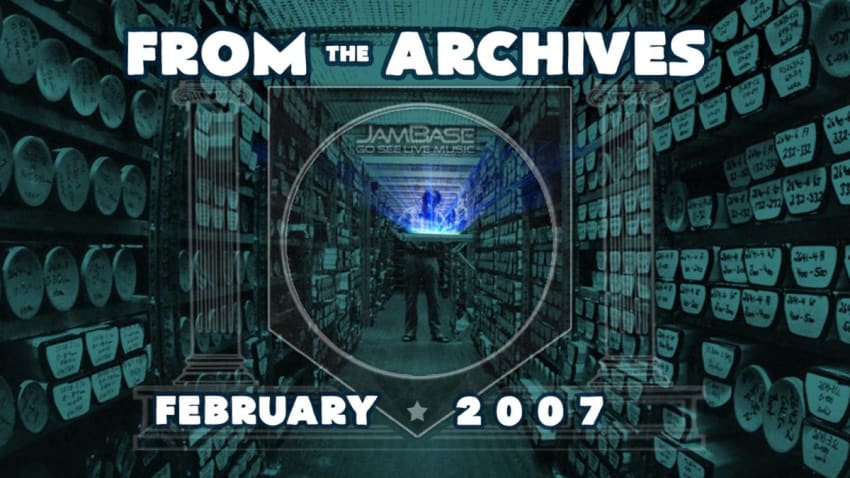SCREAMERS FIGHTS GENOCIDE
By Team JamBase Feb 9, 2007 • 12:00 am PST

 Multi-platinum selling Armenian-American rock band System of a Down and award-winning director Carla Garapedian trace the history of modern-day genocide in the film Screamers, which debuted at the AMC theaters in Times Square, New York on January 26. The documentary examines why genocides keep occurring — from the Armenian genocide in 1915, to the Holocaust, Bosnia, Rwanda and now Darfur –through the eyes and music of the Grammy award-winning rock band, whose members are all grandchildren of genocide survivors.
Multi-platinum selling Armenian-American rock band System of a Down and award-winning director Carla Garapedian trace the history of modern-day genocide in the film Screamers, which debuted at the AMC theaters in Times Square, New York on January 26. The documentary examines why genocides keep occurring — from the Armenian genocide in 1915, to the Holocaust, Bosnia, Rwanda and now Darfur –through the eyes and music of the Grammy award-winning rock band, whose members are all grandchildren of genocide survivors.“It’s important for people to be aware of the Armenian Genocide,” frontman Serj Tankian said in a statement. “History does and will repeat itself, unless we stop that cycle.” With the arguments of Harvard Professor Samantha Power, the personal stories of survivors from Armenia, Rwanda and Darfur, policy critics and whistleblowers “the screamers” the film targets the problem of genocide denial, with specific reference to the Turkish government’s current campaign to stop its citizens from discussing the genocide. When the band arrives back in the United States, they confront the hypocrisy of U.S. foreign policy in the debate on genocide recognition, with Speaker of the House, Dennis Hastert, actively blocking a vote in Congress.
The band’s efforts have gained national press attention in hundreds of articles appearing in the New York Times, Los Angeles Times, Washington Post, Chicago Tribune, Newsweek, MTV, BBC, VH1, ABC, FOX, WB, and Rolling Stone.
About the Director:
The only American ever to anchor the famous BBC World News, Carla Garapedian earned her Ph.D. in international relations at the prestigious London School of Economics, before cutting her teeth as a correspondent for NBC and later being swept up by the BBC as a director and anchor.
Since leaving the BBC (where, among other stories, she exposed major faults in Europe’s most dangerous nuclear reactors), she has cut a swath as an international documentary director, working for Hardcash Productions, the company that produced the Emmy award-winning film about women in Afghanistan, Beneath the Veil. Her sequel, Lifting the Veil, premiered in the U.S. on the Sundance Channel in August 2003.
In addition to anchoring for BBC World News, Garapedian has been a correspondent for NBC Sunrise, NBC Nightly News and CNBC financial news. She narrated the Armenian genocide film, Voices from the Lake by the acclaimed filmmaker, J.M. Hagopian, as well as co-writing his award-winning film Germany and the Secret Genocide.
The headline about her in the LA Times Calendar section is probably the best description of her work so far — “Documenting Truth in Dangerous Places.”
About System of a Down:
Like many late-’90s metal bands, System of a Down struck a balance between ’80s underground thrash metal and metallic early-’90s alternative rockers like Jane’s Addiction. Their dark, neo-gothic alternative metal earned a cult following in the wake of the popularity of such likeminded bands as Korn and the Deftones. Vocalist Serj Tankian, guitarist Daron Malakian, bassist Shavo Odadjian, and drummer John Dolmayan formed System of a Down in southern California in the mid-’90s. They quickly earned a strong following in Los Angeles, largely based on strong word of mouth. A three-song demo began circulating through metal collectors, and their fan base soon spread throughout not only America, but Europe and New Zealand.
By the end of 1997, the group had signed to American, then distributed by Columbia Records. American/Columbia released the group’s eponymous debut album in the summer of 1998, securing the band opening spots on the Slayer and Ozzfest tours. System eventually went gold, and set up the September 2001 release of the even more ambitious Toxicity. System’s second effort was another heavy music triumph, shaming the majority of their nu-metal competition and running away with multi-platinum honors. The quartet didn’t slow down. Malakian started the eatURmusic imprint and Tankian a label called Serjical Strike; Tankian also collaborated with Armenian avant-garde folk musician Arto Tuncboyaciyan in a project called Serart. In November 2002 System issued the bare-bones but no less powerful odds ‘n’ ends set Steal This Album!; they also remained politically active.
By 2004, System of a Down was back in the studio with Rick Rubin. The bold result of those sessions was a single, epic album released in two parts. Mezmerize/ Hypnotize kept System’s furious creativity alive, incorporating the wild vocal melodies, lyrical passion, and rabid structural shifts that had become their trademark. Mezmerize, or part one, appeared in May 2005, while Hypnotize, its final section, appeared later in the year, and both hit the top of the album charts.
